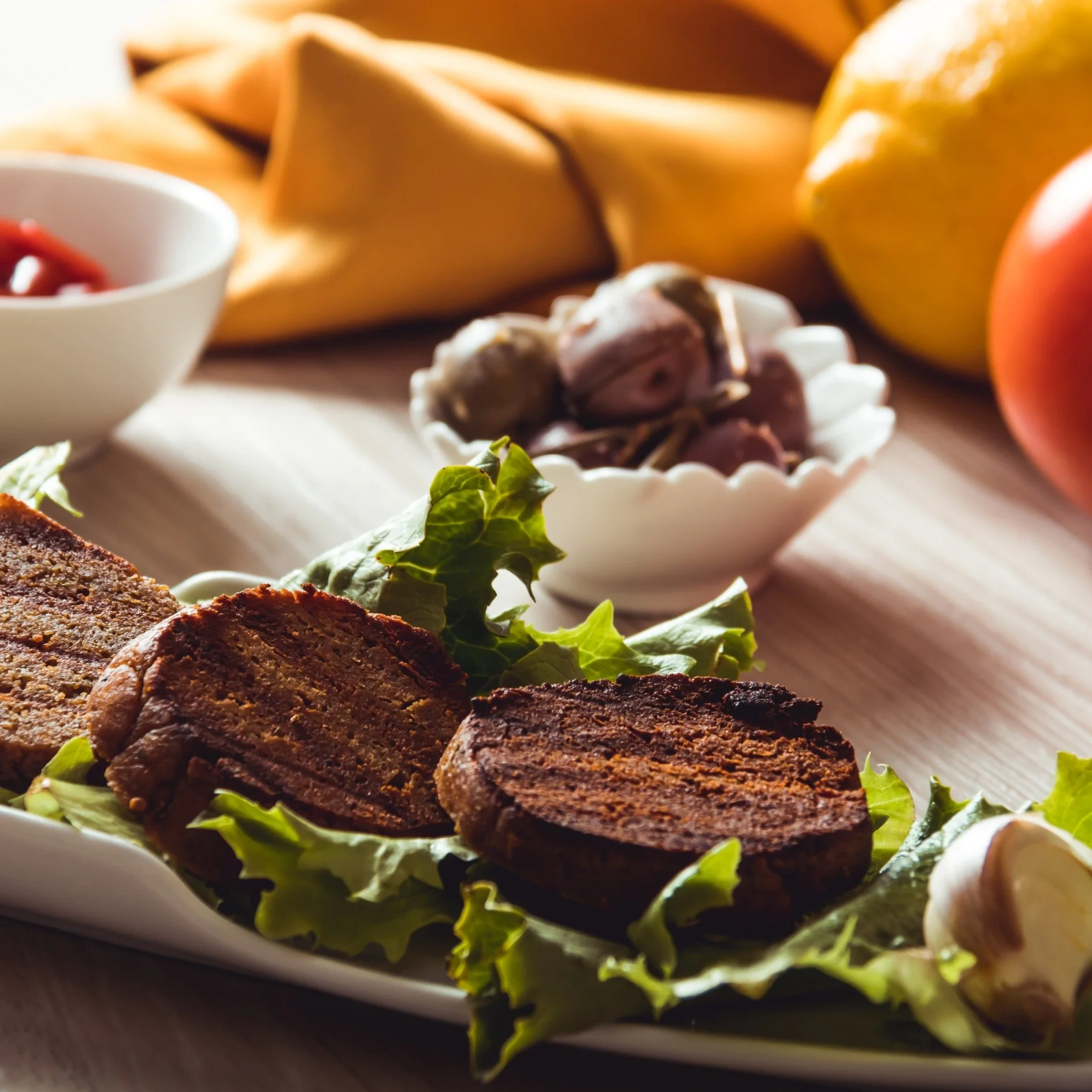High Protein Foods for Weight Gain
W&S Health & Wellness Editor
SHARE ON:
Using High Protein Foods for Weight Gain
Are you on a journey to gain weight in a healthy and sustainable way? Look no further! In this article, we'll explore the incredible benefits of high protein foods and how they can help you achieve your weight gain goals effectively.
Before we delve into the specifics, let's discuss why some individuals, regardless of their backgrounds, may aim to gain weight. There can be various reasons, such as naturally having a slender build, recovering from illness or surgery, increasing muscle mass for athletic purposes, or simply desiring to feel more confident and comfortable in their bodies. Whatever the motivation, it's essential to approach weight gain in a mindful and balanced manner.
When it comes to gaining weight, nutrition takes center stage alongside exercise. In fact, nutrition is just as vital, if not more important, than exercise itself. While exercise can support muscle development, proper nutrition ensures that you're providing your body with the necessary building blocks for healthy weight gain. It's crucial to consume a surplus of calories, but the focus should be on nutrient-dense foods to nourish your body optimally.
Now, let's explore the significant role protein plays in your weight gain journey. Protein is the superhero of nutrients, aiding in both weight gain and muscle growth. When you consume protein-rich foods, your body breaks down the proteins into amino acids, which are the fundamental building blocks of muscles. These amino acids support the repair, growth, and maintenance of muscle tissues, ultimately leading to healthy weight gain and a toned physique.
However, it's important to understand that not all protein sources are created equal. While processed protein supplements and fast food options may seem enticing, it's best to prioritize whole food sources of protein. Lean meats such as chicken, turkey, and fish, along with plant-based options like lentils, beans, tofu, and tempeh, offer a wide range of nutrients. These whole food sources are often lower in saturated fats, added sugars, and artificial additives compared to processed alternatives.
Determining the appropriate protein intake for weight gain depends on various factors such as your activity level, body weight, and individual needs. As a general guideline, aim to consume around 0.8 to 1 gram of protein per pound of body weight. For instance, if you weigh 150 pounds, you would target approximately 120 to 150 grams of protein per day. Remember, it's always beneficial to consult with a registered dietitian or nutritionist who can provide personalized recommendations based on your specific circumstances.
When it comes to gaining weight in a pocket-friendly way, incorporating cheap yet protein-packed foods into your diet is the way to go. Let's explore some fantastic options that won't break the bank while providing you with the essential nutrients your body needs.
Lentils: Lentils are a nutritional powerhouse that offers a fantastic bang for your buck. They are not only rich in protein but also packed with fiber, iron, and folate. A half-cup serving of cooked lentils contains approximately 9 grams of protein, making it an excellent plant-based protein source. Lentils also have a low glycemic index, which means they provide sustained energy without causing spikes in blood sugar levels. Incorporating lentils into soups, stews, or salads can be an affordable and versatile way to increase your protein intake.
Beans: Beans are a budget-friendly staple that packs a protein punch. Whether you opt for black beans, kidney beans, chickpeas, or any other variety, beans are an excellent source of plant-based protein, fiber, and complex carbohydrates. A half-cup serving of cooked beans typically provides around 7 to 9 grams of protein. Additionally, beans offer a wide range of vitamins and minerals, including iron, magnesium, and potassium. They can be incorporated into various dishes such as salads, chili, burritos, and veggie burgers to boost your protein intake without straining your wallet.
Eggs: Eggs are a versatile and affordable source of high-quality protein. One large egg contains about 6 grams of protein, along with essential vitamins and minerals. Eggs are also rich in amino acids, which are the building blocks of protein and play a crucial role in muscle development and repair. They are incredibly versatile and can be enjoyed in numerous ways—boiled, scrambled, poached, or added to omelets and baked goods. Eggs are not only a great option for those on a budget but also provide a complete protein source with all the essential amino acids your body needs.
Wondering why you’re seeing ads? Check out our Disclosure Policy.
Canned Tuna in Water: Canned tuna in water is a budget-friendly and convenient protein option that can be easily incorporated into meals. Tuna is not only a good source of lean protein but also packed with omega-3 fatty acids, which offer various health benefits. A 3-ounce serving of canned tuna provides approximately 20 grams of protein, making it an efficient choice for weight gain. Opt for tuna canned in water to reduce added fats and calories. Enjoy it in salads, sandwiches, or mixed with whole grain pasta for a nutritious and budget-friendly meal.
Rolled Oats: While often associated with breakfast, rolled oats are an affordable and versatile ingredient that can be utilized throughout the day. Oats are a great source of complex carbohydrates, fiber, and plant-based protein. A half-cup serving of rolled oats contains about 5 grams of protein, along with essential minerals like manganese and phosphorus. They can be enjoyed as oatmeal, added to smoothies, or used in baking recipes to increase your protein and calorie intake. Oats also provide a feeling of fullness and sustained energy, making them a valuable addition to your weight gain journey.
Incorporating these cheap high protein foods into your diet provides an affordable and nutritious way to support your weight gain goals. Not only are they packed with protein, but they also offer an array of essential vitamins, minerals, and other beneficial compounds. So go ahead and explore these budget-friendly options, and let your taste buds and your wallet be satisfied.
Vegan High Protein Foods for Weight Gain
If you're following a vegan or plant-based lifestyle and looking to gain weight, there are plenty of fantastic high protein options available to support your journey. Let's explore some nutrient-dense vegan foods that are not only great for weight gain but also provide a wide range of health benefits.
Tofu: Tofu, made from soybeans, is a versatile and protein-rich food. It contains all the essential amino acids, making it a complete source of protein. A 3-ounce serving of tofu provides approximately 8 grams of protein, along with calcium, iron, and other essential minerals. Tofu is also a good source of isoflavones, which are plant compounds with potential health benefits, including reducing the risk of certain chronic diseases. It can be stir-fried, baked, grilled, or added to soups and salads, offering a versatile and budget-friendly option for increasing your protein intake.
Vegan Protein Powder: Vegan protein powders are a convenient way to supplement your protein intake and support weight gain. They are typically made from plant sources such as pea, rice, hemp, or soy. These powders are highly concentrated in protein, with around 20 to 30 grams of protein per serving. Vegan protein powders often provide a complete amino acid profile and can be easily incorporated into smoothies, shakes, or even baked goods. They offer a convenient option for those who require a quick and portable protein source.
Tempeh: Tempeh is a fermented soy product that serves as an excellent source of vegan protein. A 3-ounce serving of tempeh contains approximately 16 grams of protein, making it a powerhouse for supporting weight gain. Besides being protein-rich, tempeh is also a great source of probiotics, which promote gut health and improve digestion. It is a versatile ingredient that can be marinated, grilled, or sautéed, adding a delightful texture and nutty flavor to your meals.
Seitan: Seitan, also known as wheat gluten, is a popular vegan protein option. It is made from gluten, the protein found in wheat. A 3-ounce serving of seitan contains approximately 20 grams of protein, making it a protein powerhouse for weight gain. Seitan is also low in fat and carbohydrates, making it an ideal choice for those looking to increase protein intake without excess calories. It can be prepared in various ways, such as pan-frying, grilling, or adding to stews and stir-fries, providing a meat-like texture and flavor.
Nutritional Yeast: Nutritional yeast is a deactivated yeast that is often used as a cheese substitute due to its savory and cheesy flavor. It is a valuable source of protein, providing around 4 grams of protein per tablespoon. Nutritional yeast is also rich in B-vitamins, including vitamin B12, which is important for vegans who may have limited dietary sources of this nutrient. Sprinkle nutritional yeast on salads, popcorn, pasta, or use it in sauces and dressings to enhance the flavor while boosting your protein intake.
Incorporating these vegan high protein foods into your diet not only supports weight gain but also offers a wide range of health benefits. They provide essential amino acids, vitamins, minerals, and other valuable compounds, promoting overall well-being on your plant-based journey.
Remember, gaining weight in a healthy and sustainable way is achievable through a balanced and varied diet. Embrace the diversity of these vegan protein options, experiment with flavors and recipes, and nourish your body while achieving your weight gain goals.
Wondering why you’re seeing ads? Check out our Disclosure Policy.
The Bottom Line on Using High Protein Foods for Weight Gain
Throughout this article, we have emphasized the significance of a balanced and conscious approach to weight gain. It's crucial to prioritize nutrient-dense foods, whether you follow a traditional or plant-based diet. High protein foods not only help you gain weight but also provide essential amino acids for muscle repair and growth.
Remember, weight gain is a personal journey, and it's important to consult with healthcare professionals or registered dietitians to tailor your dietary needs to your individual circumstances. They can help you determine the appropriate protein intake based on factors like your body weight, activity level, and specific health goals.
When it comes to cheap high protein foods, options such as lentils, beans, eggs, canned tuna in water, and rolled oats offer affordable and versatile choices that can be easily incorporated into your meals. These foods provide a good balance of protein, fiber, and essential nutrients, making them ideal for healthy weight gain without straining your budget.
For those following a vegan or plant-based lifestyle, tofu, vegan protein powders, tempeh, seitan, and nutritional yeast serve as excellent protein sources. These foods offer a wide range of essential amino acids, vitamins, and minerals, allowing you to achieve your weight gain goals while adhering to your ethical choices.
In conclusion, gaining weight in a healthy and sustainable way requires a well-rounded approach that considers both nutrition and exercise. Protein plays a pivotal role in supporting weight gain and muscle development, and incorporating high protein foods into your diet is a smart and effective strategy.
Whether you choose affordable options like lentils and beans or opt for vegan alternatives like tofu and seitan, the key is to focus on nutrient-dense, whole food sources of protein. These foods not only provide the protein your body needs but also offer a range of additional health benefits.
Embrace your unique journey of weight gain, and remember that it's about feeling confident, nurturing your body, and living your best life. By integrating high protein foods into your diet, you can achieve your weight gain goals while maintaining a conscious and inclusive approach to your overall well-being.













